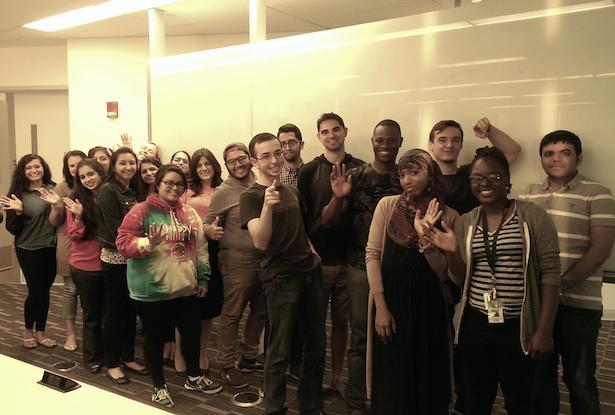Kean University Webinar Explores Science and Human Rights

A webinar hosted recently by Jeffrey Toney, Ph.D., Kean University’s provost and vice president for academic affairs, explored chemistry’s connection to human rights. Students in Toney’s graduate-level course, Scientific Writing and Presentation, and participants from Harvard University, the University of Chicago, McGill University, the Centers for Disease Control and other prestigious institutions came together for the hour-long session, Chemists Contributing to Human Rights: Enhancing Research, Teaching and Global Impact. The American Chemical Society (ACS) sponsored the presentation.
“My hope is that faculty at Kean will consider leading their own webinars sponsored by their professional organizations or connect their classes to ongoing webinars,” said Toney. “I believe that this approach supports deep learning as participants explore new questions in their field.”
In the webinar, Toney highlighted the work of another group with which he is affiliated, On-call Scientists. It is an organization that works in human rights hotspots throughout the world, such as Haiti, providing scientific support on such projects as clean water and sanitation, among others.
The Kean students benefitted from the opportunity to learn with others across geographic borders and to hear diverse opinions on how science can make a positive impact on human rights issues.
“It says something about Kean that students from Harvard and the University of Chicago were part of the webinar, and it shows how webinars can bring students together from around the country to share ideas and learn together," says Diana Habib, a senior Science and Technology Molecular Biology-Biotechnology major who participated in the webinar.
Toney’s webinar was part of a human rights series conducted by ACS, which included presentations by the Nobel Peace Prize-winning Physicians for Human Rights on how they use science to help document and analyze human rights violations; Sir Chris Llewellyn Smith, president of the SESAME Council which is overseeing the development of the Middle East's first major international research center; and Nina Dudnik, Ph.D., founder and chief executive officer of Seeding Labs, which donates lab equipment and supplies to talented scientists in developing countries.
Photo Caption:
Students in Scientific Writng and Presentation, a graduate-level course taught by Jeffrey Toney, Ph.D., provost and vice president for academic affairs, recently took part in a webinar, Chemists Contributing to Human Rights: Enhancing Research, Teaching and Global Impact, with participants from Harvard University, the University of Chicago, McGill University, the Centers for Disease Control and other prestigious institutions.